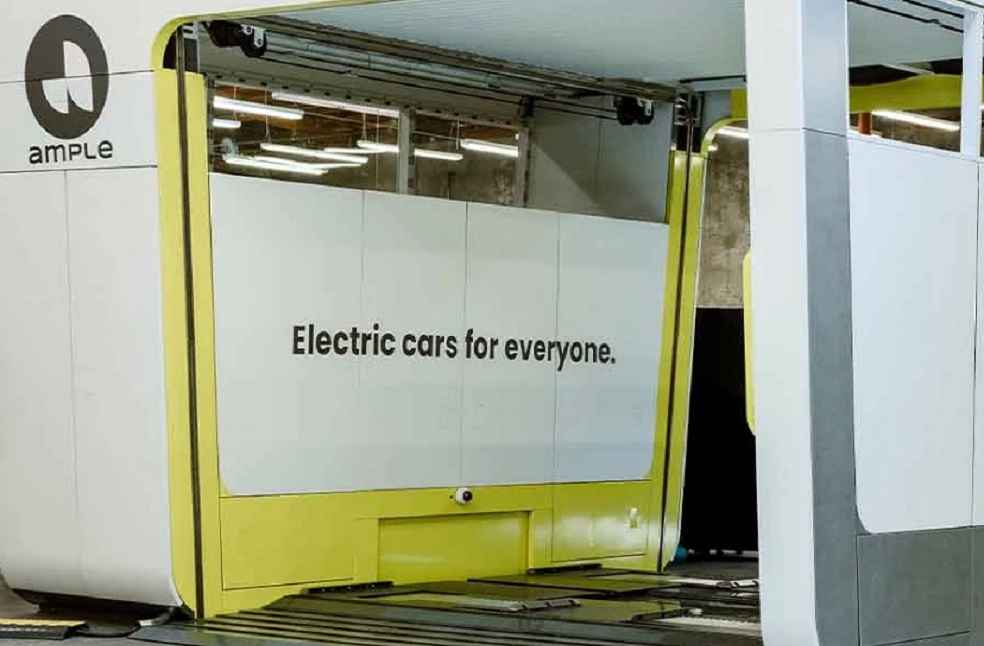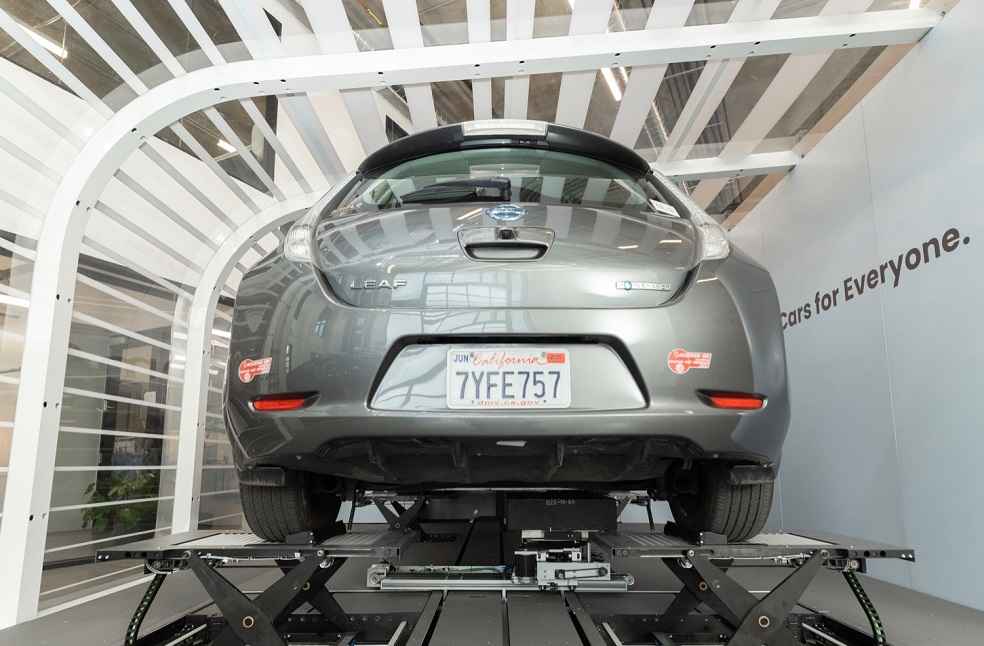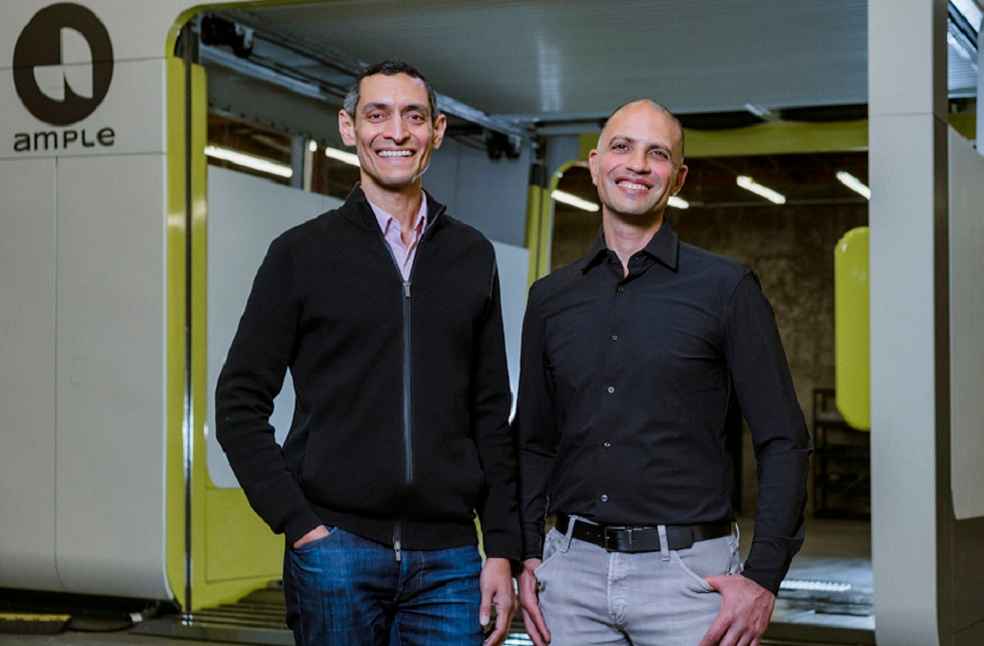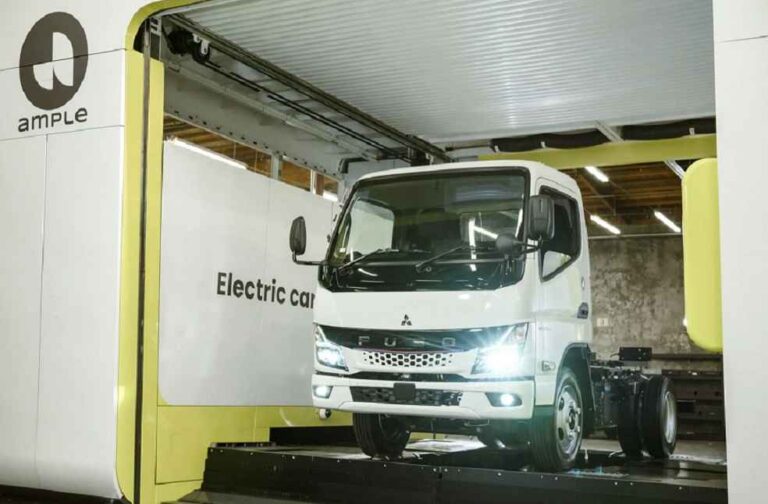San Francisco-based startup ‘Ample’ has announced a new global partnership with Mitsubishi Fuso to implement its innovative ‘EV Truck Battery Swap’ Revolution in the latter’s electric trucks. This partnership marks an essential step towards the electrification of last-mile delivery vehicles, a rapidly growing segment of the automotive market.
Ample’s battery swap technology aims to drastically reduce charging times for electric vehicles, thereby enhancing their practicality and appeal. The company has pioneered modular battery swap stations, which can fully recharge an electric vehicle within minutes. These stations, initially tested in San Francisco, have successfully reduced the typical swap process from ten to five minutes.
Ample began by deploying its technology in rideshare companies like Uber and delivery startups such as Sally. Its second-generation swap stations have been specifically designed to cater to larger EV models like those of Mitsubishi Fuso, majority-owned by Daimler Trucks and currently merging with Toyota’s Hino Motors.

The partnership will initially see the launch of battery-swappable Mitsubishi Fuso eCanter models in Japan this winter, aligning with Mitsubishi Fuso’s sustainability goals, which include a completely carbon-neutral product portfolio by 2039. This move is expected to help accelerate the electrification of the last-mile delivery sector, a key objective for both companies.
Ample’s battery swapping infrastructure will be deployed in Kyoto, Japan this winter, building on its existing work with Japanese energy company Eneos. The exact number of swapping stations has not been disclosed, but Ample confirmed there will be “more than one station” for the initial deployment.
The collaboration with Mitsubishi Fuso represents the first time Ample’s technology is being used for large vehicles. Until now, the company’s technology has been utilized for ride-hail vehicles in San Francisco and Madrid.
Despite its novel technology, Ample is not alone in the battery swapping market. Chinese EV manufacturer Nio has been developing similar infrastructure, aiming to establish 2,300 battery swapping stations globally by the end of 2023.

While the United States has primarily focused on developing charging stations for EVs, other countries such as China have embraced battery swapping as a potential solution for rapid EV adoption. This model provides a promising alternative to conventional charging methods, particularly for commercial vehicles that require extended uptime.
Ample’s partnership with Mitsubishi Fuso, therefore, signifies a bold step in the evolution of EV infrastructure, particularly in the commercial sector, where the electrification process has been notably slower. This could mark a turning point for the global adoption of electric vehicles, particularly in the crucial last-mile delivery segment.
How does ‘Ample Battery Swap’ work
Ample’s latest battery swapping technology is revolutionizing electric vehicle (EV) infrastructure by promising a fully charged battery in approximately five minutes for most cars and trucks.

This breakthrough innovation utilizes modular battery packs, designed to be compatible with Ample’s battery swap stations. These packs replace the conventional practice of charging for hours at a public station.
Under this new system, drivers simply roll their EVs onto a dedicated platform, where automated machinery takes over. A robot situated beneath the vehicle swiftly removes the depleted battery module and transports it to a charging area. In a seamless process, the robot then selects a fully charged module, transports it back to the vehicle, and installs it.
This efficient and user-friendly technology is set to greatly enhance the practicality and convenience of owning and operating electric vehicles.
SPECIAL STORY | China and Germany Seal Landmark Automotive and Green Energy Collaboration





